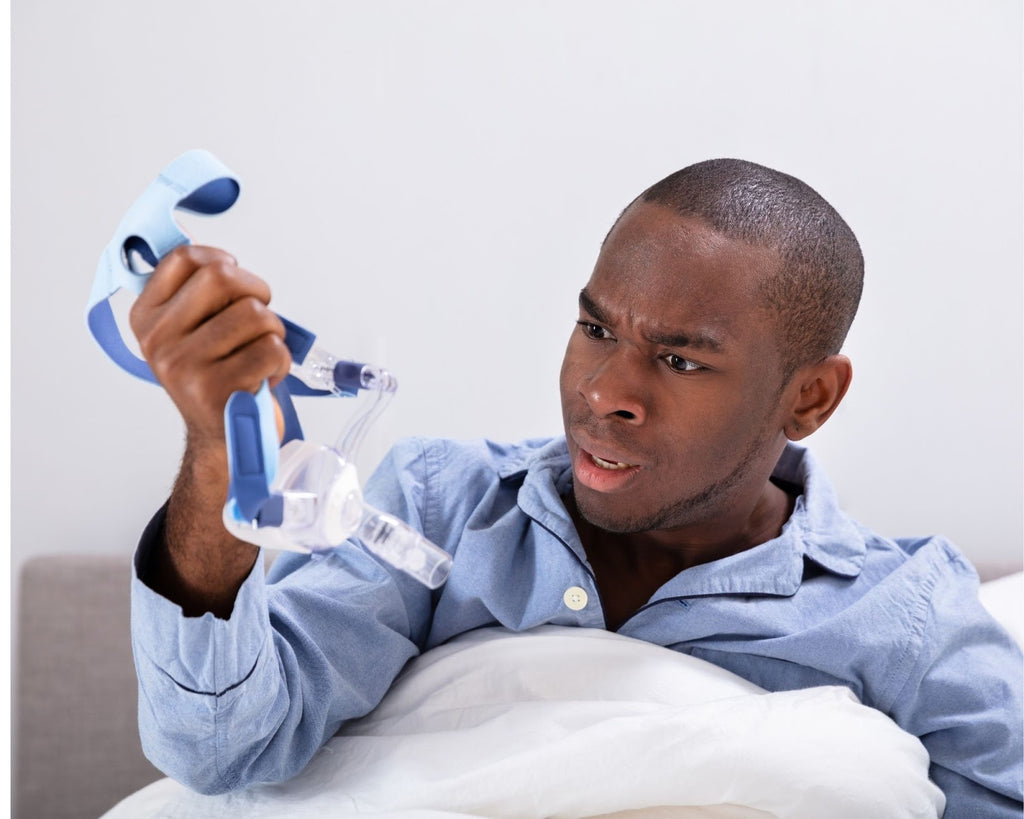There’s no better feeling than a good night’s sleep — but if you’re suffering from sleep apnea, you know how hard that is to come by. Continuous positive airway pressure (CPAP) is an effective treatment option that makes it easier to breathe consistently throughout the night and prevents your airways from closing and becoming blocked.
If you’re still experiencing sleep apnea symptoms, there might be a problem with your CPAP machine. But before you can repair your breathing equipment, you need to know what problem you’re dealing with.
Signs Your CPAP Machine Is Broken
Here are some common indicators that your CPAP machine is broken:
- Your CPAP machine won’t turn on – The number one sign that there’s an issue with your CPAP machine is when it won’t turn on. If you’re pressing the “on” switch and it’s not coming to life, then there is an issue that needs to be resolved. When your CPAP machine refuses to turn off or generate the necessary airflow to improve your sleep, getting the device repaired is an absolute must.
- The humidifier tank doesn’t need to be refilled often – Your CPAP machine uses a heated humidifier tank to create the optimal pressure required to regulate your breathing while you sleep. If something is amiss with your CPAP machine, such as the temperature and humidity settings, you might find yourself refilling the tank every few days. When working correctly, your breathing device will require more consistent tank refills. If the water levels within the tank never change, the machine may not be working at all.
- The hot plate isn’t warming up – Your CPAP machine has a heating element to warm up the tank of water, which creates the pressure that keeps your airways open. If the heating element isn’t correctly warming up the tank of water, minimal evaporation will occur.
- Your CPAP machine is louder than usual – You may notice that as your CPAP machine begins to age, it starts making more noises than usual. While noise from the breathing device is expected, it may indicate a problem if the noises become loud or persistent.
- It’s not generating adequate airflow – To help ensure your airways remain unblocked throughout the night, your CPAP machine provides sufficient airflow to keep your soft tissues from collapsing. However, if your CPAP machine is no longer supplying the optimal pressure and cannot do so, it’s essential to get it checked out to ensure you’re getting the most from the device.
- Your sleep apnea symptoms haven’t subsided – Through the consistent use of a CPAP machine, your sleep apnea symptoms should subside. Not only should you be able to sleep throughout the night without breathing disruptions, but you should feel more rested throughout the day, experience less frequent headaches, and feel more alert. If your symptoms haven’t gone away (or have gotten worse), there’s a chance that your CPAP machine isn’t working properly.
- The breathing device is old or outdated – Unfortunately, your CPAP machine isn’t built to last forever. Most devices are built to perform optimally for around five years — around that time frame, you may begin to notice the performance declining. At that time, you will need to decide if repair or replacement is the best option.
How to Repair Your Broken CPAP Machine
Now that you know what warning signs to look for, it’s time to tackle how to keep your CPAP machine in tip-top shape and what to do if it is broken.
Those using a CPAP machine should clean their breathing equipment at least once a week for optimal hygiene. Regular cleaning will limit your exposure to bacteria and mold, limit allergy symptoms, reduce the chance of equipment breakdowns, and keep your device warranty intact. If your CPAP machine uses filters, you’ll also want to replace these regularly to ensure you’re breathing the cleanest air.
While maintenance can significantly reduce the chance of a system breakdown, there might come a time when your CPAP machine needs repair. If you’re experiencing one of the problems above, it’s crucial to have a trained professional examine your CPAP machine, diagnose the problem, and perform the necessary repairs.
ApneaMed Has the Breathing Equipment You Need
In some cases, your breathing device may be past the point of repair. When this happens, you should consider whether you should invest in another CPAP machine or switch to an APAP machine. An AutoPAP machine offers both a continuous mode (otherwise known as CPAP) and an auto-adjusting mode, allowing you to determine which feels best for you. The auto-adjusting mode ensures you receive the ideal air pressure throughout the entire night, no matter the sleep stage or position you’re sleeping in.
If you’re ready to get a good night’s sleep, contact ApneaMed. Our team offers home sleep tests and a variety of in-home breathing equipment to treat your sleep apnea.

